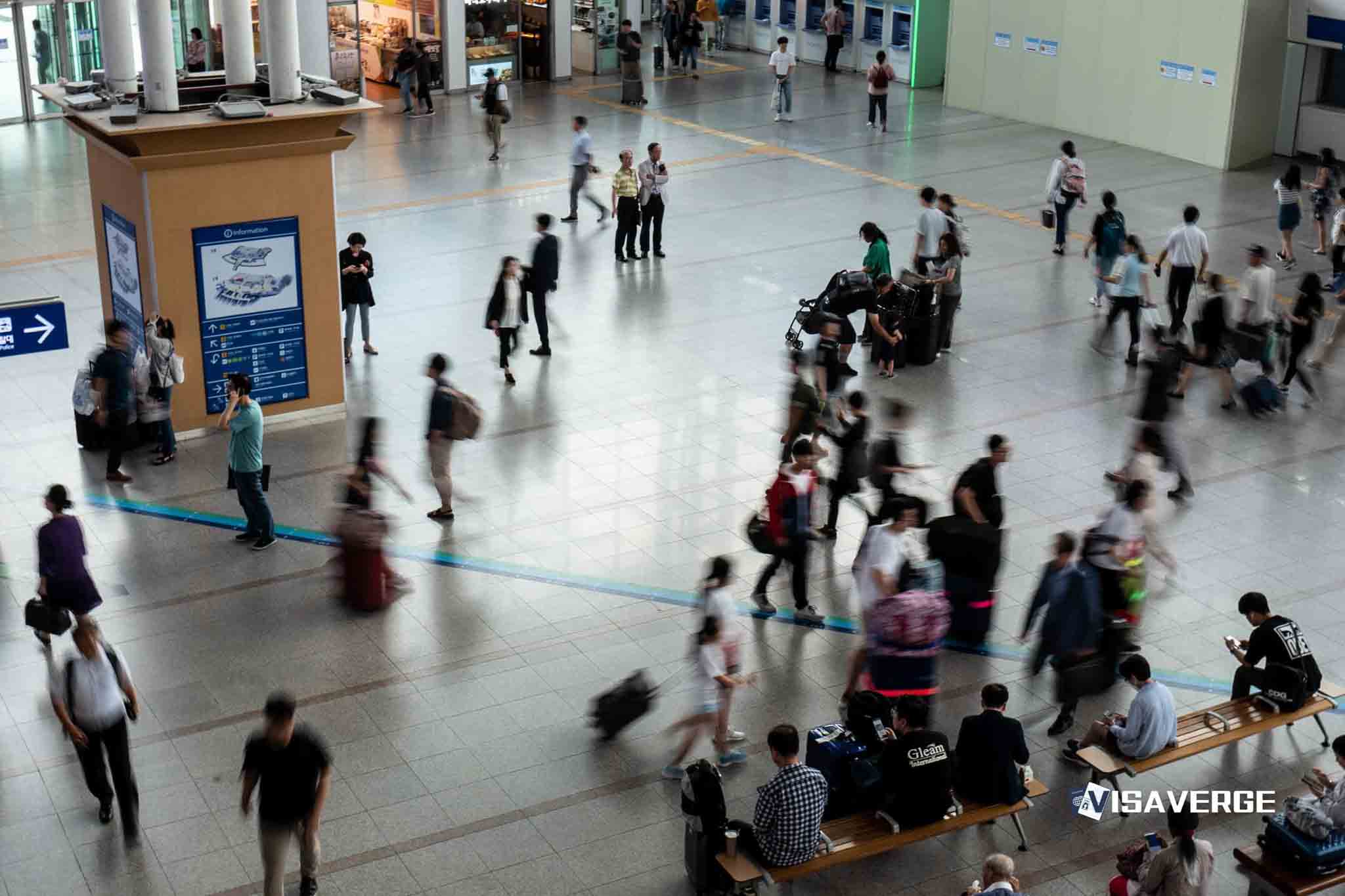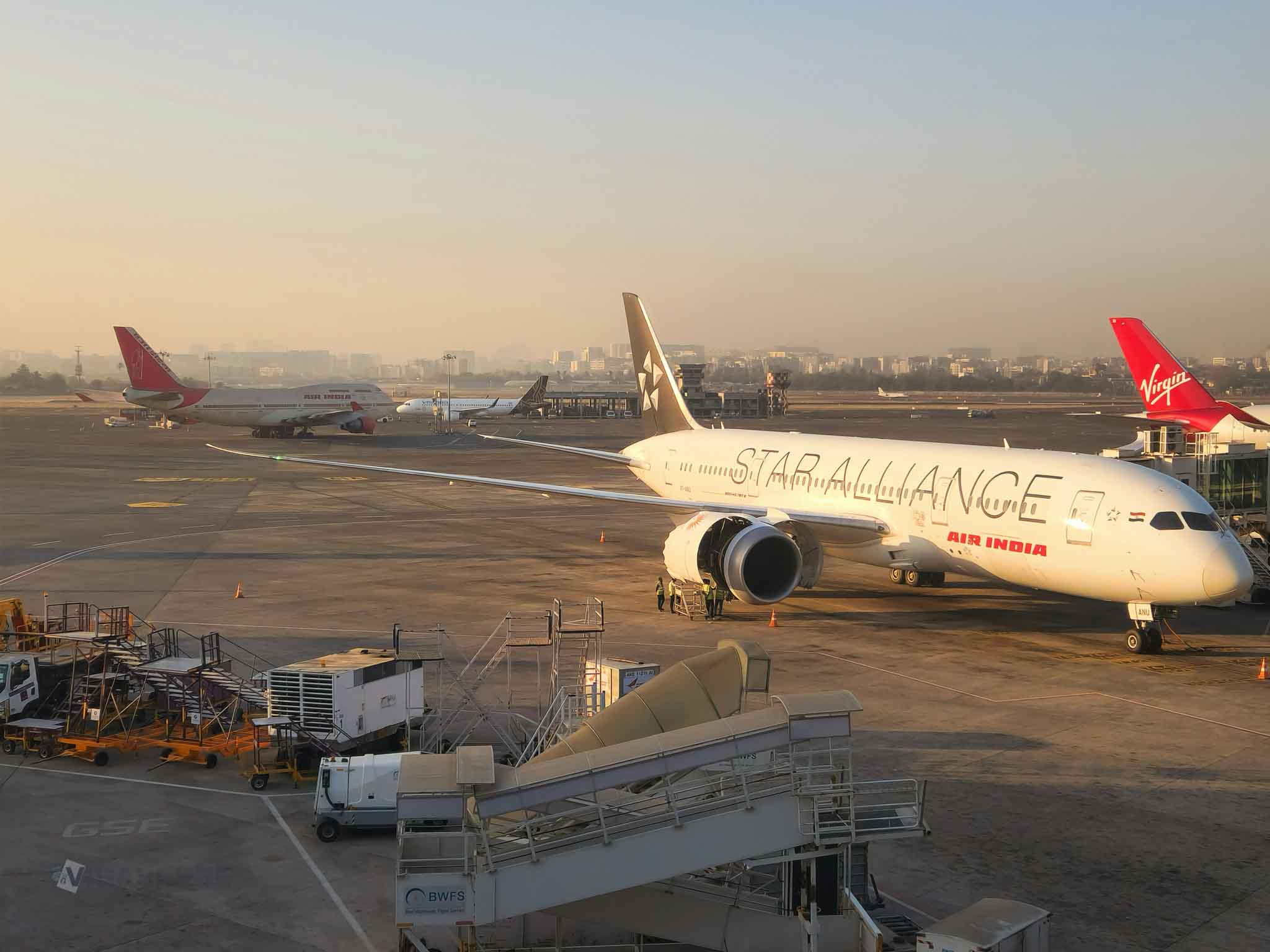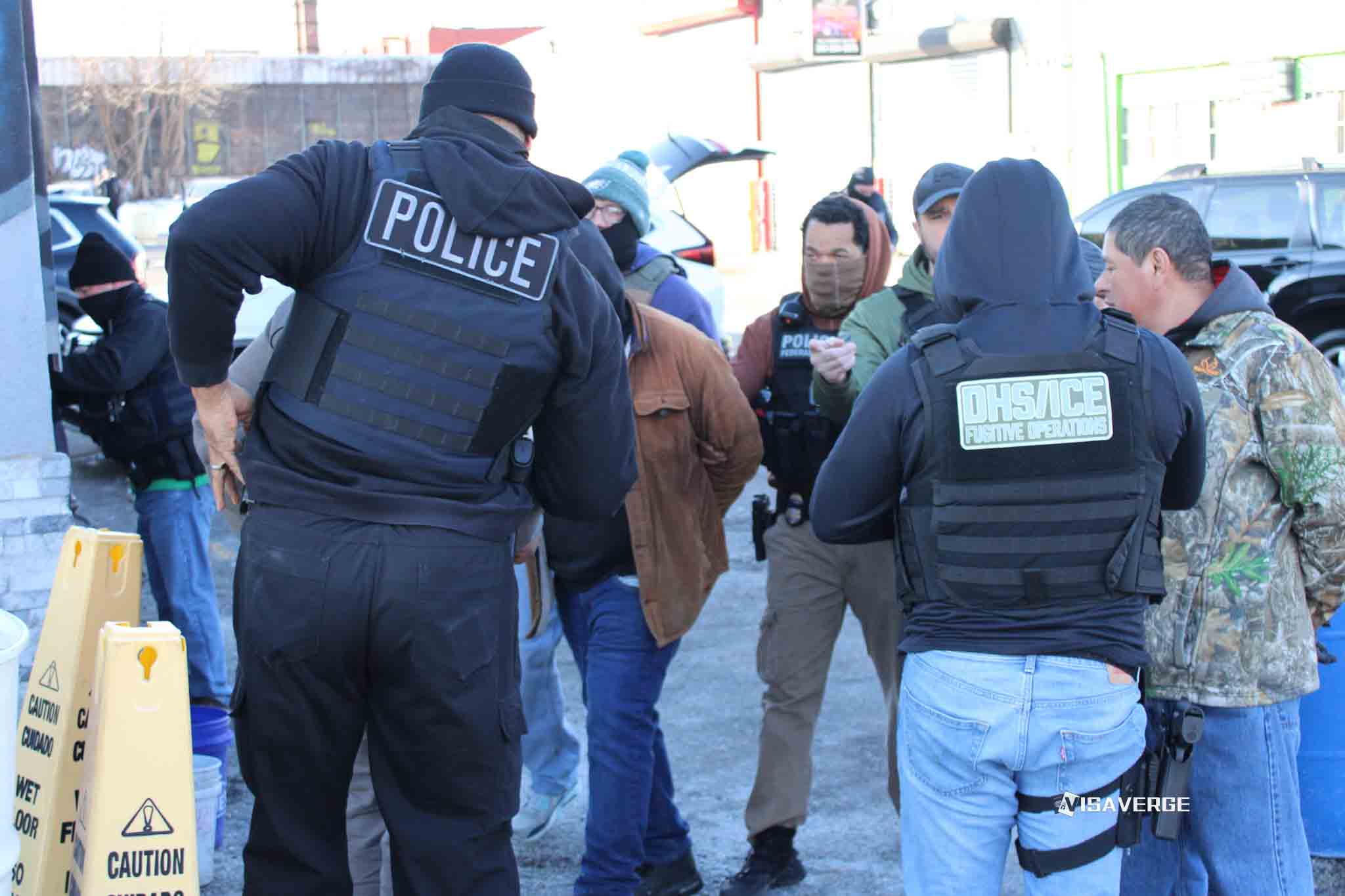Key Takeaways
• Trump administration plans a travel ban affecting up to 43 countries, with full bans on 11 nations.
• Visa interview waivers reduced from 48 to 12 months, causing longer consular appointment waits.
• Customs and Border Protection increased device searches and secondary inspections, delaying foreign travelers.
A sweeping Foreign National Travel Advisory has been issued for employers and their international employees, as the Trump administration moves forward with a series of legal and policy changes that could reshape travel and immigration to the United States 🇺🇸. As of late May 2025, U.S. authorities have ramped up border scrutiny, restricted visa processing, and are preparing a new travel ban that could affect up to 43 countries. These developments have immediate and far-reaching effects for businesses, foreign nationals, and families with ties to the United States 🇺🇸.
What’s Happening and Why Now?

The Trump administration has made border security and immigration control a top priority since returning to office in January 2025. According to official statements and leaked drafts, a new travel ban is under review, with the most severe restrictions—full entry bans—targeting 11 countries. The administration’s stated goal is to protect national security by tightening vetting procedures and limiting entry from countries considered security risks.
Employers with foreign national employees, as well as individuals planning to travel to the United States 🇺🇸, are now facing a much more complicated and uncertain environment. The U.S. Department of State (DOS) and U.S. Customs and Border Protection (CBP) have both issued new rules and increased enforcement at ports of entry, making it essential for all stakeholders to stay informed and prepared.
Key Changes: What Employers and Foreign Nationals Need to Know
Enhanced Border Scrutiny
CBP officers are now conducting more thorough questioning and requiring additional documentation from foreign nationals, even those with valid visas or green cards. There has been a noticeable increase in secondary inspections—where travelers are taken aside for more detailed questioning—and in searches of electronic devices such as phones and laptops.
What this means:
– Travelers should expect longer wait times at the border.
– There is a higher chance of being asked to provide extra documents or to unlock personal devices for inspection.
– Even those with all the right paperwork may face delays or additional questions.
New Travel Ban Proposals
The Trump administration is preparing a new travel ban that could impact up to 43 countries. The proposal uses a color-coded system:
– Red Zone: Full entry bans for 11 countries (including Afghanistan, Bhutan, Cuba, Iran, Libya, North Korea, Somalia, Sudan, Syria, Venezuela, Yemen).
– Orange Zone: Heightened restrictions for other countries, possibly including extra vetting or limited visa types.
The final list of affected countries and the start date for these bans are still pending White House approval. However, leaked drafts suggest that the administration may give only a one-week notice before enforcement begins.
Visa Processing Delays and Interview Waiver Restrictions
The DOS has made it harder for foreign nationals to renew visas without an in-person interview. The window for using the interview waiver program has been cut from 48 months to just 12 months since the last visa expiration. Only certain diplomatic and official visa categories (A, G, NATO) are mostly exempt.
Practical effects:
– More people must schedule in-person appointments at U.S. consulates.
– Wait times for appointments have increased, with some locations requiring bookings 4–8 months in advance.
– Administrative processing and background checks are more common, leading to further delays.
Extreme Vetting and Consular Discretion
Consular officers now have broad authority to refuse visas, even if the applicant has an approved petition from U.S. Citizenship and Immigration Services (USCIS). Officers can also send cases back to USCIS for further review, which can leave employees stranded abroad for months.
Key points:
– Visa approval is no longer guaranteed, even for those with a history of successful travel.
– The risk of being denied a visa or delayed in administrative processing is much higher.
Who Is Affected?
Employers
Businesses with international employees or globally mobile workforces are facing new risks and administrative burdens. Key concerns include:
– Employees being denied reentry or delayed abroad, disrupting business operations.
– The need to update travel and remote work policies to account for possible extended absences.
– Increased paperwork and compliance requirements for business travelers.
– The possibility of losing access to critical talent if employees cannot return as scheduled.
Foreign National Employees
Individuals who are not U.S. citizens or permanent residents are experiencing:
– Greater anxiety and uncertainty about international travel.
– A higher chance of being stopped for secondary inspection or having their devices searched.
– The risk of being stranded outside the United States 🇺🇸 if their visa is refused or delayed.
– Fewer options for renewing visas without traveling to a consulate.
Families and Students
Family members and students from affected countries may face:
– Delays in family reunification or study plans.
– Difficulty scheduling visa appointments.
– Uncertainty about whether they will be able to enter or return to the United States 🇺🇸.
Step-by-Step Guidance for Employers
To help employers manage these challenges, experts recommend the following steps:
1. Pre-Travel Preparation
- Review visa status: Make sure the employee’s visa and all supporting documents are current and valid.
- Schedule appointments early: Book visa appointments at least 4–8 months in advance if a new visa stamp is needed.
- Prepare documentation: Gather clear, organized documents that match the employee’s visa category and intended activities in the United States 🇺🇸.
- Advise on digital security: Instruct employees to remove sensitive or political content from their devices and social media accounts before traveling.
- Consult legal counsel: Work with immigration attorneys to review each case and prepare for possible complications.
2. During Travel
- Answer questions carefully: Employees should answer CBP questions truthfully and briefly, avoiding unnecessary details.
- Avoid political discussions: Do not volunteer opinions or information unrelated to the purpose of travel.
- Prepare for device searches: Use secure cloud storage for sensitive company data and be ready to unlock devices if asked.
3. Post-Travel
- Monitor policy changes: Stay alert for new advisories or changes in travel rules.
- Have backup plans: Be ready to support employees who are delayed or denied reentry, including remote work options or legal assistance.
- Update internal policies: Regularly review and update company travel and remote work policies to reflect the latest government guidance.
Real-World Impacts: What Stakeholders Are Saying
Government Perspective
Officials from the Trump administration, including President Trump, have defended these measures as necessary for national security. They argue that enhanced vetting and travel bans help protect the United States 🇺🇸 from potential threats.
Employers and Business Groups
Employer groups and business leaders are raising concerns about the impact on talent mobility and business continuity. Many are urging the government to provide clearer guidance and more predictable processing times.
Immigration Attorneys
Legal experts strongly recommend that employers and foreign national employees avoid non-essential international travel for now. They warn that sudden policy changes and unpredictable delays can leave travelers stranded or unable to return to their jobs.
Foreign Nationals
Many foreign nationals report increased stress and uncertainty about their ability to travel, renew visas, or even maintain their jobs in the United States 🇺🇸. The risk of being caught up in administrative processing or denied entry is a source of ongoing worry.
Historical Background: How Did We Get Here?
The current Foreign National Travel Advisory and related policy changes are not happening in a vacuum. They build on earlier actions taken by the Trump administration between 2017 and 2020, including the original travel bans and “extreme vetting” policies. In 2018, the Supreme Court upheld Presidential Proclamation 9645 in the case of Trump v. Hawaii, giving the president broad authority under the Immigration and Nationality Act (INA) §212(f) to restrict entry from certain countries.
Since returning to office, President Trump has issued new executive orders aimed at tightening border security and restricting entry from countries considered security risks. The administration has also reduced consular staffing and increased administrative processing, making it harder for foreign nationals to obtain or renew visas.
Quantitative Data: The Numbers Behind the Changes
- 43 countries could be affected by the new travel ban proposals.
- 11 countries may face complete entry bans (“Red Zone”).
- Visa interview waiver eligibility has been reduced from 48 months to 12 months since the last visa expiration.
- Visa appointment lead time: Employers are advised to schedule consular appointments 4–8 months in advance.
- Refugee admissions were previously capped at 50,000 for FY2017, setting a precedent for current restrictions.
What’s Next? Future Outlook and Pending Changes
Travel Ban Implementation
The final list of countries affected by the new travel ban and the effective date are expected soon. There may be only a one-week notice before the new rules take effect, so employers and foreign nationals should be ready to act quickly.
Further Restrictions Possible
Additional executive actions or regulatory changes could expand the list of affected countries or make it even harder to qualify for a visa. Ongoing reductions in consular staffing and increased administrative processing are likely to continue, leading to longer delays.
Consular Operations
With fewer staff and more cases requiring in-person interviews, U.S. consulates are struggling to keep up with demand. This means that delays and backlogs are likely to persist for the foreseeable future.
Practical Tips and Action Steps
Employers and foreign nationals can take several steps to reduce risk and stay compliant:
- Monitor official advisories: Check the U.S. Department of State – Travel Advisories page regularly for updates.
- Consult legal counsel: Work closely with immigration attorneys to understand the latest rules and prepare for possible complications.
- Update internal policies: Make sure your company’s travel and remote work policies reflect the current environment.
- Prepare for delays: Build extra time into travel and visa renewal plans.
- Train employees: Educate staff on what to expect at the border and how to handle device searches or secondary inspections.
Summary Table: Key Changes and Practical Steps
| Area | Recent Change/Status | Practical Steps for Employers/Employees |
|---|---|---|
| Travel Ban | Pending, up to 43 countries affected | Monitor advisories, avoid non-essential travel |
| Visa Interview Waivers | Window reduced to 12 months | Schedule appointments 4–8 months in advance |
| Border Scrutiny | Increased questioning, device searches | Prepare documentation, clean devices |
| Consular Processing | More delays, admin processing | Have backup plans, legal support ready |
| Remote Work Policies | Must account for travel disruptions | Update policies, clarify expectations |
Where to Find More Information
- U.S. Department of State – Visa Services: For the latest on visa policies and travel advisories.
- CBP Information Center: For questions about entry procedures and border inspections.
- Employer Immigration Counsel: For case-specific guidance and legal support.
- WorkFlex and similar platforms: For compliance management and risk assessment tools.
For official forms such as the DS-160 Nonimmigrant Visa Application, always use the official government website to ensure you have the most current version.
Final Thoughts and Takeaways
The Foreign National Travel Advisory highlights a period of rapid change and uncertainty for anyone involved in international travel to the United States 🇺🇸. Employers must act quickly to update policies, support their employees, and plan for possible disruptions. Foreign nationals should prepare for longer wait times, more questions at the border, and the possibility of sudden policy shifts.
As reported by VisaVerge.com, the best approach is to stay informed, work closely with legal counsel, and avoid non-essential travel whenever possible. By taking proactive steps and preparing for the unexpected, employers and employees can reduce risk and maintain compliance in this challenging environment.
For the most up-to-date information, always refer to official government resources such as the U.S. Department of State – Travel Advisories. Staying alert and prepared is the best way to protect your business, your employees, and your future in the United States 🇺🇸.
Learn Today
Travel Ban → A government restriction preventing entry from designated countries to protect national security.
Visa Interview Waiver → A policy allowing eligible travelers to renew visas without in-person interviews under specific criteria.
Secondary Inspection → Additional, extended questioning and checks of travelers after initial border screening by officers.
Administrative Processing → A further review period for visa applications causing delays beyond normal processing times.
Consular Discretion → Authority of consular officers to approve or refuse visas, even with USCIS petition approval.
This Article in a Nutshell
The Trump administration’s new travel policies tighten U.S. borders, impacting up to 43 countries with bans and delays. Employers and foreign nationals face increased visa hurdles, longer waits, and device inspections. Advanced planning, legal counsel, and updated company policies are vital to navigate these evolving immigration challenges effectively.
— By VisaVerge.com













